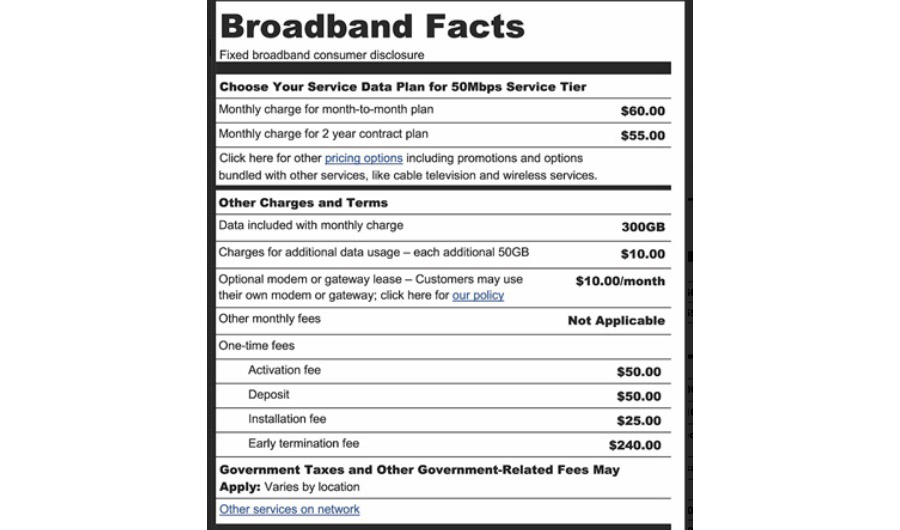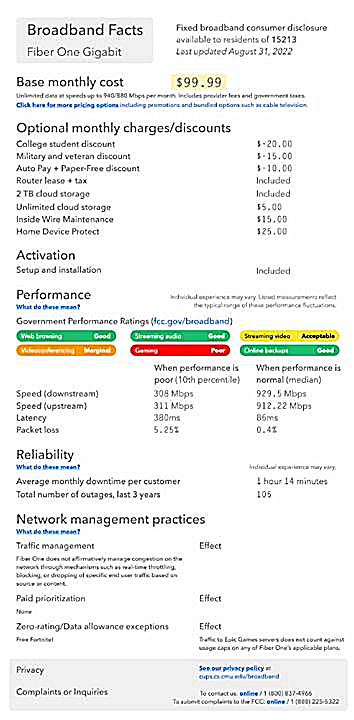Carnegie Mellon Proposes Extensive Broadband Label
Would include things like zero-rating and paid prioritization status

The smarter way to stay on top of broadcasting and cable industry. Sign up below
You are now subscribed
Your newsletter sign-up was successful
Carnegie Mellon University’s CyLab Security & Privacy Institute has come up with what it says is a better and more consumer-friendly broadband service label after the FCC sought help in coming up with the right information for its own template.
The Federal Communications Commission has been contemplating such a label for several years and came out with a voluntary version in 2016. The use of the label has since been mandated in the Biden administration’s infrastructure act, with its billions in broadband subsidies, so the commission is at the task in earnest.

OTI: Broadband Nutrition Labels Are Mandatory
CyLab’s label would have much more information than the FCC’s 2016 model. FCC chair Jessica Rosenworcel has said that label must include at a minimum “accurate information about prices, introductory rates, data allowances and broadband speeds.”
CyLab says its proposed label was the product of a large-scale broadband user study of what information was most important in shopping for internet service and what presentation would make it most understandable and useful.
They said users were most interested in cost, speed and reliability. When it came to speed and performance, though, CyLab said wanted information on how the service held up during periods when performance was “less than normal,” rather than just the best possible conditions. That’s the case with today’s broadband ads, CyLab argued.
Consumers also wanted a better handle on total service costs over a multiple-year span, which CyLab said they “struggled" with in trying to use the FCC’s 2016 label templates, which the regulator is using as a starting point for the actual labels.
The smarter way to stay on top of broadcasting and cable industry. Sign up below
CyLab came up with its own label and ran it by the users surveyed, who suggested it worked better than the FCC’s.
The CyLab label includes average monthly downtime per customer, number of outages per year, and network-management practices, like whether or not there is “paid prioritization” or “zero rating,” both of which were hot-button issues in the network neutrality debate.
That is in addition to a list of “optional charges/discounts” that include, in the sample provided, router lease, inside wire maintenance, military discounts and much more. ▪️
Contributing editor John Eggerton has been an editor and/or writer on media regulation, legislation and policy for over four decades, including covering the FCC, FTC, Congress, the major media trade associations, and the federal courts. In addition to Multichannel News and Broadcasting + Cable, his work has appeared in Radio World, TV Technology, TV Fax, This Week in Consumer Electronics, Variety and the Encyclopedia Britannica.

